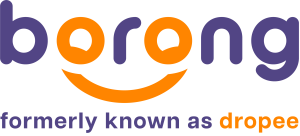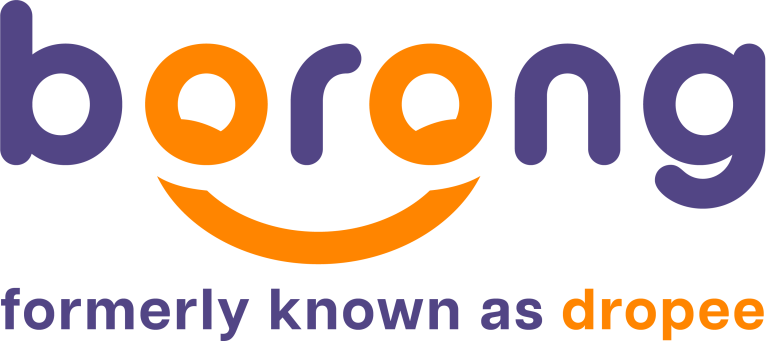Financial literacy is using financial knowledge to effectively manage money – something often ignored by small business owners. For small businesses wanting to grow, it is one of the most important pillars of success.
Businesses savvy with finances will be better equipped to face the challenges that come their way. This means being prepared for taxes and audits, balancing books, making sound investments, and planning for the future.
Ultimately, having basic financial literacy skills helps you make better decisions for your business.

How Financial Literacy Can Improve Your Business
Here are some of the ways financial literacy can benefit your small business.
It Makes You More Financially Efficient
Having a broader understanding of your finances will shed light on how expenses impact your business’ balance sheet.
Maybe there are production costs you can eliminate to optimise your resources, or you realise you’re actually overspending in marketing. When you’re aware of how all your expenses affect your balance sheet, it becomes easier to be more cost-effective.
It Makes You A Better Negotiator
Whether you’re negotiating supplier prices or construction costs, it’s good to have a clear idea of your financial implications. Understanding how the decisions you make will affect the financial standing of your business gives you the vocabulary to ask for an outcome in your favour.
It Helps You Keep Track of Your Actions
With financial literacy, it allows you to keep track of the impacts on your bottom line. You’ll be able to apply this knowledge to how to run your business and consider how all of your decisions will shape your business’ financial health.
It Positions Yourself Better in the Market
Financial literacy teaches you to be more organised in your approach to bookkeeping. This means having a firm hand over your cash flow, credit history business plan, proof of collateral, tax returns, bank statements, etc. This eliminates any potential roadblocks when applying for additional support such as loans or benefits for your business.
It Improves How You Manage Your Operations
A clear grasp on the fundamentals of your finances will not only help you operate more successfully and strategise more efficiently, but it also lets you zero-in on minute details such as performance numbers that may have started to slip or customers with overdue payments.
Easy Steps Towards Improving Your Financial Literacy
Unlike large corporations that can afford to hire experts to help them oversee their budgeting, accounting and taxes; small business owners often have to wear multiple hats.
Whether you’re mapping out your marketing strategy for Q4 or sitting down with your team to plan out new product launches, you’re likely getting involved in every single facet of your business, and this includes finances.
The good news is that there are plenty of resources out there to help you get started. From financial magazines to online podcasts, there is a wealth of information available to get you started in building a solid knowledge base.
Here are five ways to improve your financial literacy.
Review Your Budget on A Monthly Basis
Creating a budget and reviewing it at the end of every month is the best way to see how you’re spending your money. Your budget plan helps you…
- forecast your earnings for the upcoming month
- allocate where you want to spend that revenue
- pinpoint the differences in your budget plan and in the actual spend amount
A budget can be as simple as an excel spreadsheet but we recommend having the following components to give you more clarity.
- Estimated revenue: The amount of revenue you are estimated to receive from the sale of your products or services during the budget year. It can be based on your previous month’s numbers or industry averages.
- Fixed costs: Things such as rent, utilities, salaries, equipment rentals and other recurring expenses will fall under this category.
- Variable costs: Costs such as raw materials, production costs, travel expenses and other corporate expenses that will change according to how much your business produces or sells. Your budget should include the figure you intend to spend on these items.
- Cash flow: The money that is moving in and out of your business and is what helps you track where your money is going. It is the lifeblood of your business and should be monitored closely. Having a positive cash flow means that you have more money coming in than you have going out.
- Profit: Profits are the fuel behind your business and having it in your budget keeps track of the profit you are earning based on your revenue and expenses. If your profit margins are lower than where you’d like them to be, this is an indicator that you’ll need to revise your costs.
Take an Online Financial Literacy Course
Having a firm grasp on the basics equips you to better interpret your data and take measured action.
Signing up for a financial literacy or even accounting course via platforms such as Udemy or Coursera is an option, as it gives you a run-down of the basics. Alternatively, take advantage of free finance management resources such as the ones available on multiply.com.my and smeinfo.com.my to access a wider range of information on managing the financial health of your business.
Do Your Research Before Applying for A Loan

If you need to get a loan, make sure to do your due diligence and assess all the potential lending services. Some of the loan conditions you should compare between lenders before making a decision include:
- Interest rates and annual percentage rate (APR): Websites like Ringgit Plus and iMoney are great tools for comparing SME loans and microfinance schemes. Once you’ve selected the best bank for your business, you can apply online to get business funding.
- Collateral: Some types of loans are backed by collateral like houses or cars. If you’re unable to pay your loan back, you might risk losing the property you’ve used as collateral.
- Fees: Some lenders charge fees that can add up over time. These can take the form of prepayment penalties, late-payment fee, and insufficient funds fee among others.
- Maximum loan term: This refers to the length of time you are given to pay off your loan. Some lenders may offer an extended loan term of up to 12 years but it can also mean paying more interest in the long-term.
- Monthly instalment: You should ensure that these monthly payments can fit comfortably into your business’ budget so that you can sustain other operations until you’ve paid off your debt.
Before applying for a loan, assess your monthly expenses and identify areas where you can afford to minimise expenditure. Once you’ve done all that, you’ll be able to identify the closest estimate of the figure you’ll need to borrow.
Understand and Monitor Your Business’ Credit Score Rating
Your credit score rating is what stands between a bank’s decision to approve a loan or credit card application. Thus, understanding what it is and how it impacts your business decisions will go a long way.
To put it simply, your credit score rating is an assessment of your credit worthiness by a bank. A credit score report will often include financial information such as outstanding credit, credit card and loan application history and payment history.
How you score is a measure of your repayment capability. For example, any number between 697 and 850 is considered as a good credit score in Malaysia. The higher the number, the higher the likelihood of approval.
We recommend checking your credit score once a year to know where you stand. For small businesses, a good credit score means that you’ll have a lifeline towards obtaining the capital you need to…
- cover your daily expenses
- hire new employees
- pay existing ones
- purchase inventory
- fund your expansion plans
By taking the necessary measures to maintain and uplift your credit score, you are also improving your business’ opportunities. Banks often refer to credit reports. The better your credit, the more access you’ll have towards getting the funding you need to grow your business.
Finally, Remember to Ask Questions
If you have an accountant or a finance team helping to manage your books, work closely with them to understand the numbers on your reports. Review your numbers with them and get them to explain everything clearly.
If you don’t understand why certain expenses are calculated or what you should do to prepare for tax season, ask! They are the best resources for expert advice so use this as an opportunity to elevate your financial literacy.
Increase Small Business Success with Dropee Solutions
Wherever you may be in your journey, embracing digital transformation helps you efficiently manage your finances.
For businesses across Malaysia, partnering with platforms like Dropee can help you support your transition into a digital space and empower you in making better and smarter choices.
From automating your inventory and customer management to selling your products on an online marketplace, we offer various solutions that can be customised to your specific needs.
To learn more about how we can help you, get in touch with us today for a free consultation!


